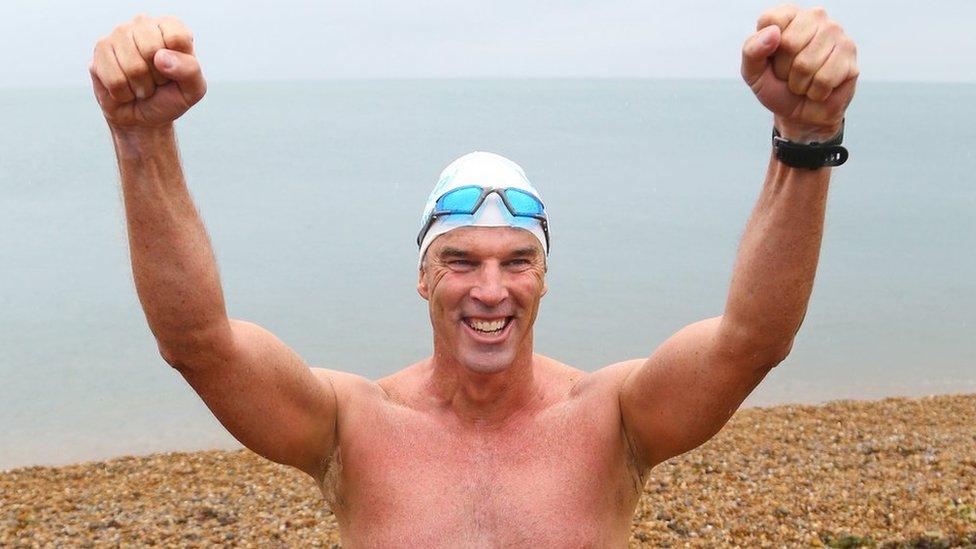Climate change: Endurance swimmer to cross Antarctic lake
- Published
- comments

An endurance swimmer is planning to swim across a lake in Antarctica to raise awareness of the climate crisis.
On 22 January, Lewis Pugh will swim 1km (0.6 miles) across one of the thousands of supra-glacial lakes in Antarctica.
The endurance swimmer won't even wear a wetsuit! Oh no! Lewis will brave the icy waters wearing just his swimming trunks, goggles and a swim hat. Brrrrrrrrrrrrrrr!!
Supra-glacial lakes form when melting water collects on the surface of glaciers or ice sheets.
A recent survey revealed that more than 65,000 supra-glacial lakes have appeared on the east Antarctic ice sheet in the past three years.
Data has also showed that Antarctica lost the same amount of ice between 2014 and 2017 as it had in the past 30 years.
The danger is not just the freezing water, and wind chill factor, but also the possibility the lake could empty out from a crack in the lake sheet.
Supra-glacial lakes form from melted water
Lewis, who is UN patron of the oceans, is the only person to have completed a long distance swim in every ocean of the world.
Over 30 years, he has swum in the most hostile waters on earth including the Antarctic, the North Pole and the Himalayas.
Last year, the 50-year-old swimmer completed a challenge to swim the length of the English Channel in support of cleaning up the oceans.
He finished the 560km (348 mile) swim from Land's End in Cornwall to Dover in Kent in 49 days.
This time he has been training on the Isle of Lewis in the Outer Hebrides in Scotland because of its icy waters.
When he attempts the swim in Antarctica the water will be just above freezing point. But the air directly above minus 37C - well below freezing!
Lewis wants to raise awareness about the impact of climate change on polar regions, and also to call for a network of marine protected areas in Antarctica.
He says: "We have a window of opportunity right now to solve this crisis. It will soon be gone."
- Published2 January 2020
- Published28 September 2019
- Published23 September 2019
